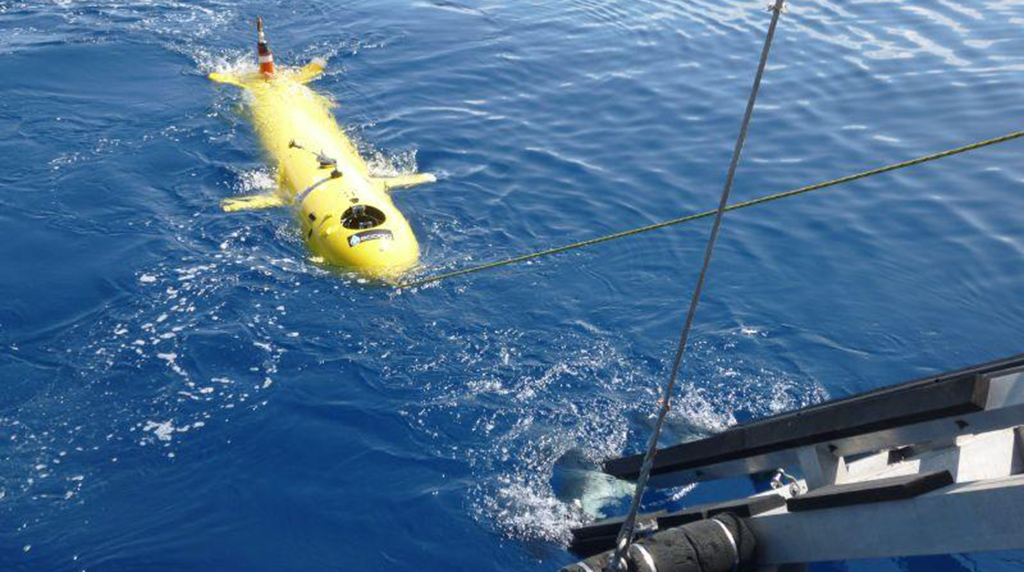November 19, 2013
Autonomous underwater vehicles used for oil spill research in the Gulf of Mexico are the focus for this month’s public science forum organized by the University of Mississippi Department of Physics and Astronomy.
The fall semester’s fourth meeting of the Oxford Science Cafe is set for 6 p.m. Nov. 19 at Lusa Pastry Cafe, 2305 West Jackson Ave. Arne R. Diercks, AUV manager in the National Institute for Undersea Science and Technology, will discuss “A Dive into the Deep Gulf of Mexico: NIUST’s Deep Sea AUVs.” The program is free and open to the public.
“NIUST (a collaboration between UM and the University of Southern Mississippi headquartered at the UM Field Station) operates two autonomous underwater vehicles, Eagle Ray and Mola Mola,” Diercks said. “Primarily tasked with performing seafloor surveys at depths down to 2,000 meters, the vehicles are used in support to study the effects of the 2010 Macondo Oil Spill after the explosion of the Deep Water Horizon drilling platform, one of the largest oil spills in U.S. history.”Diercks’ 30-minute presentation will discuss operations using these vehicles at depths with pressures reaching 200 times that at sea level, producing data at a resolution impossible to obtain from the sea surface.
“We know less about Earth’s deep sea than we know about the surface of the moon,” Diercks said. “The vehicle group is taking part in the ECOGIG research consortium funded by BP through the Gulf of Mexico Research Initiative to produce high-resolution bathmetry maps of natural oil seeps on the continental slope of the northern Gulf of Mexico.”
Diercks earned his bachelor’s and master’s degrees from the University of Hamburg in Germany, and his doctorate from USM.
After 12 years in industry using high-frequency radar systems to monitor surface currents in the coastal oceans, he took a position with the NIUST Underwater Vehicle Technology Center to manage operations of their deep-sea autonomous underwater vehicle fleet.
His research expertise is in marine snow aggregates, autonomous underwater vehicles, geographic information science, marine geology and geophysics, and physical oceanography.
“I think Dr. Diercks’ presentation will be a great talk,” said Marco Cavaglia, professor of physics and astronomy. “I’ve been seeking someone from the UM Field Station to come and share their research findings with the public in this manner.”
The Science Café began three years ago and was held in Lusa Pastry Café on North Lamar Boulevard before the business opened a second location on West Jackson Avenue.
For more information about Oxford Science Cafe programs, go to http://www.phy.olemiss.edu/oxfordsciencecafe.
This article originally appeared here.


















 back to top
back to top